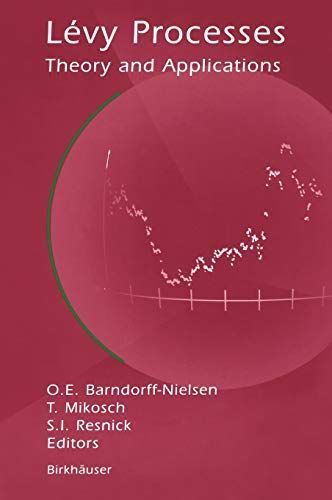
Lévy Processes Theory and Applications
A Lévy process is a continuous-time analogue of a random walk, and as such, is at the cradle of modern theories of stochastic processes. Martingales, Markov processes, and diffusions are extensions and generalizations of these processes. In the past, representatives of the Lévy class were considered most useful for applications to either Brownian motion or the Poisson process. Nowadays the need for modeling jumps, bursts, extremes and other irregular behavior of phenomena in nature and society has led to a renaissance of the theory of general Lévy processes. Researchers and practitioners in fields as diverse as physics, meteorology, statistics, insurance, and finance have rediscovered the simplicity of Lévy processes and their enormous flexibility in modeling tails, dependence and path behavior. This volume, with an excellent introductory preface, describes the state-of-the-art of this rapidly evolving subject with special emphasis on the non-Brownian world. Leading experts present surveys of recent developments, or focus on some most promising applications. Despite its special character, every topic is aimed at the non- specialist, keen on learning about the new exciting face of a rather aged class of processes. An extensive bibliography at the end of each article makes this an invaluable comprehensive reference text. For the researcher and graduate student, every article contains open problems and points out directions for futurearch. The accessible nature of the work makes this an ideal introductory text for graduate seminars in applied probability, stochastic processes, physics, finance, and telecommunications, and a unique guide to the world of Lévy processes.